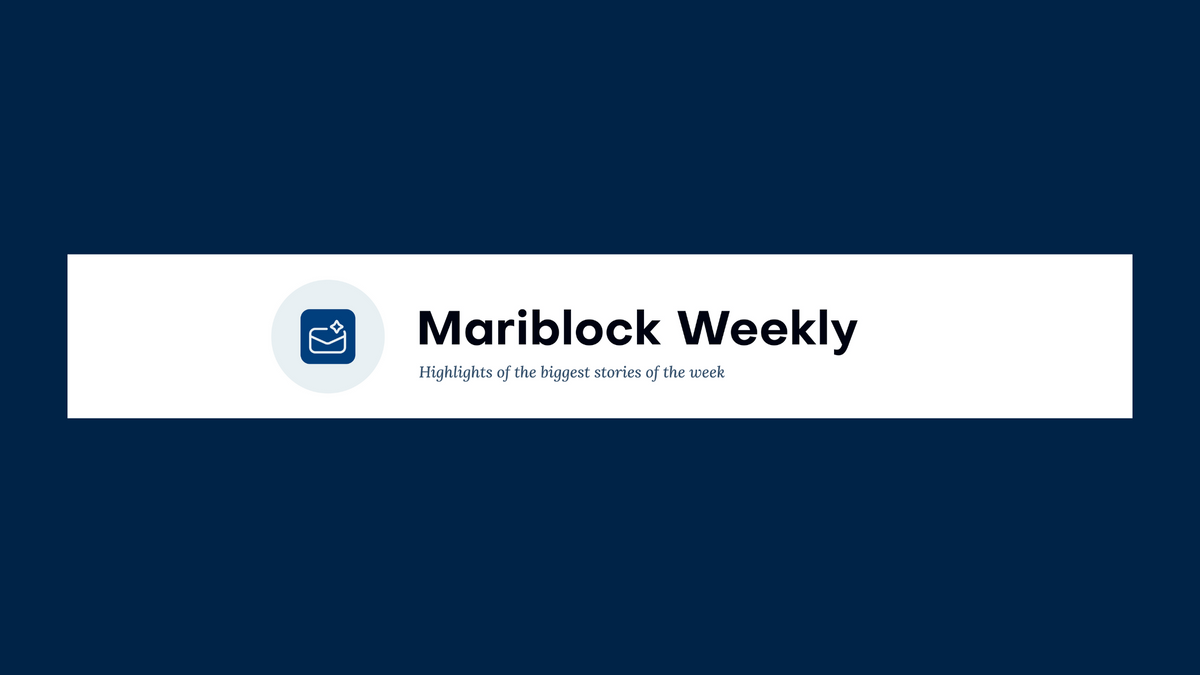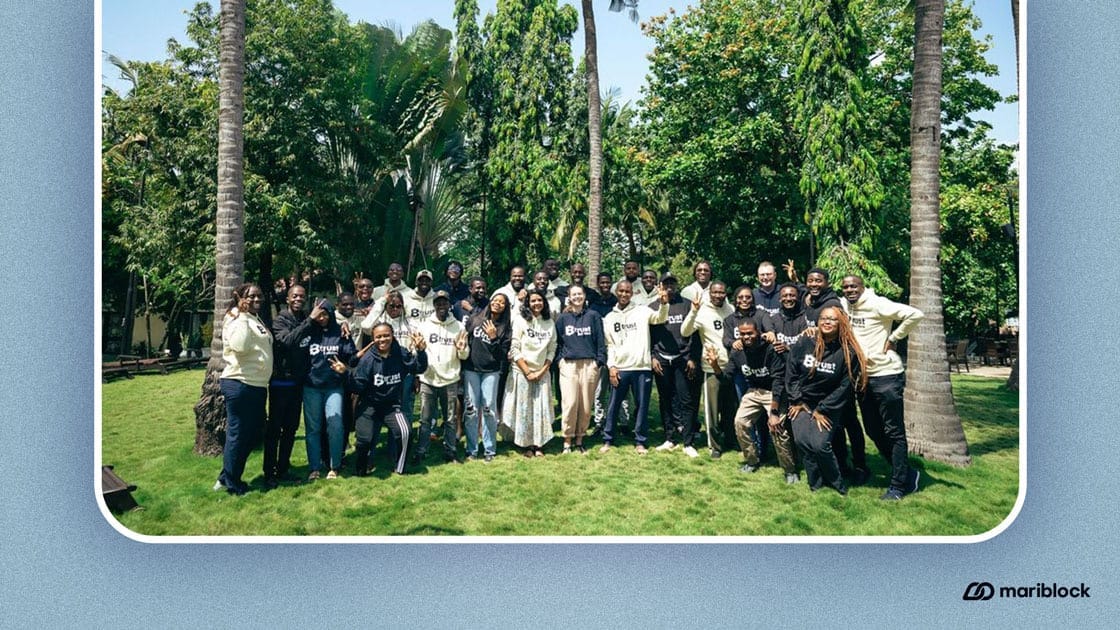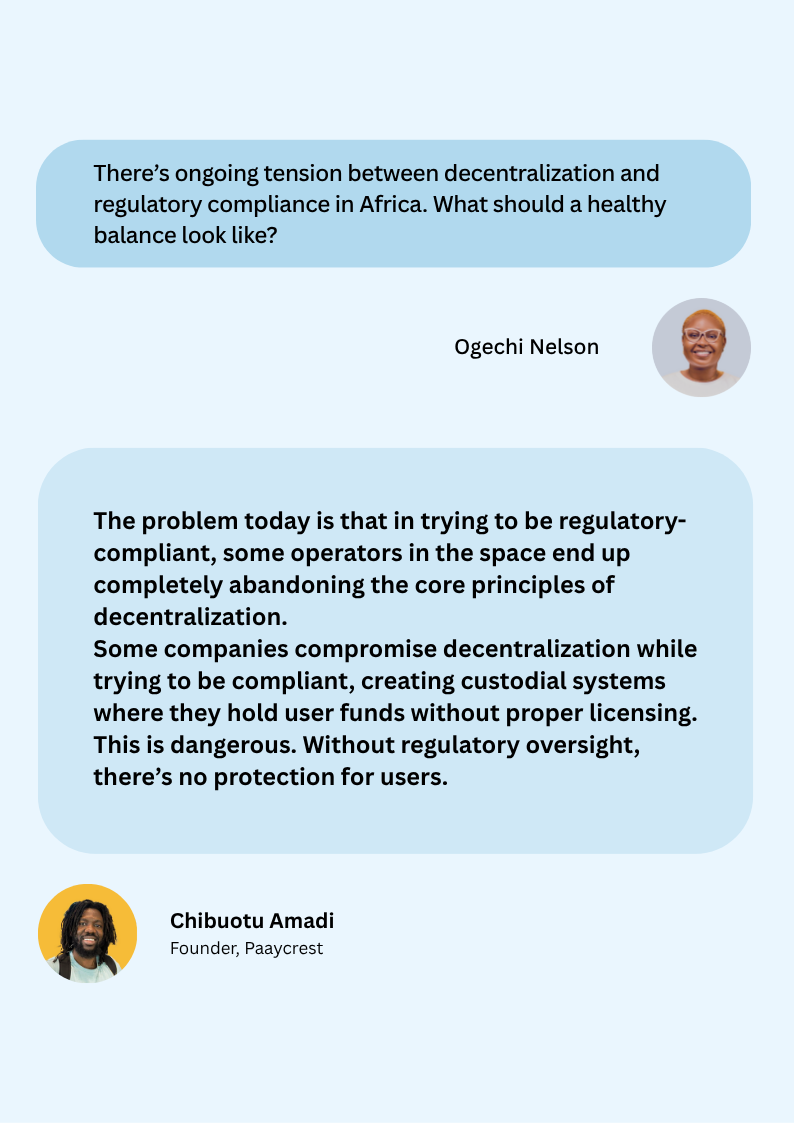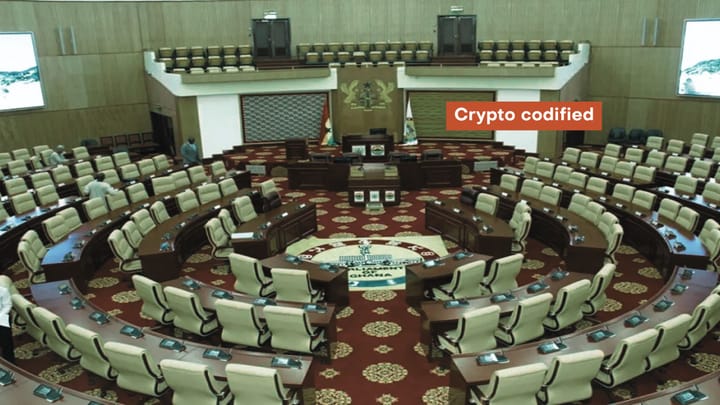🟠 Nigeria plans new blockchain policy. Again.
Plus: 🌍 Btrust grants $1M to ten Bitcoin-focused events and developer education programs; 🇰🇪 VACC hosts crypto training session for Kenyan lawmakers

Nigeria plans new blockchain policy, again

Topline: Nigeria’s minister of communications and digital economy, Bosun Tijani, says a new blockchain policy is in the works — just two years after the last one launched but fizzled out. (Details)
Key details: The ministry has released a white paper outlining plans for a “structured, inclusive, and forward-looking framework” to guide blockchain adoption.
- It states that the new strategy will build on, not replace, the 2023 policy created by the National Information Technology Development Agency (NITDA).
- To support the effort, the ministry utilized AI tools and human reviewers to identify 21 local researchers who would contribute to the framework and is now inviting additional stakeholders to participate.
Context: NITDA published a 32-page blockchain policy in 2023 to promote transparency, security, and financial inclusion.
- A committee was set up to drive implementation, but was quietly disbanded, reconstituted, and has delivered little since.
- Last year’s promises of AI and blockchain hubs, as well as a national blockchain called Nigerium, have yet to materialize.
What people are saying: Skepticism is high.
- Chris Ani, CEO of tech education platform DABA, criticized the ministry for failing to follow through on past promises.
- Njoku Emmanuel, founder of shuttered blockchain payment startup Lazerpay, held in Nairobi, focused on providing lawmakers with hands-on exposure to cryptocurrency, questioned the government’s priorities, pointing to more urgent issues like Nigeria’s electricity crisis.
- Still, not all feedback was negative: some praised the initiative and offered suggestions to improve its execution.
Btrust grants $1M to ten Bitcoin-focused events and developer education programs

Topline: Bitcoin nonprofit Btrust announced $1.04 million in grants, split between four developer programs and six events focused on Bitcoin development in the Global South. (Details)
The details: All African beneficiaries were events and conferences, including the Africa Bitcoin Conference, Adopting Bitcoin Africa, Africa Free Routing bootcamps, and Dakar Bitcoin Days.
- Developer program grants went to organizations outside the continent.
- Btrust noted it already supports African developer training through Btrust Builders, its talent development arm.
Zoom out: In 2023, Btrust acquired Qala and rebranded it as Btrust Builders to scale Bitcoin dev training in Africa.
- Its first cohort admitted 55 software engineers for a three-month open-source development program.
- With venture capital drying up, many African Bitcoin and crypto initiatives now rely on grants from nonprofits and ecosystem funds to stay afloat.
Kenyan lawmakers get hands-on with crypto

Topline: Kenya’s Virtual Assets Chamber of Commerce (VACC) has conducted a training session for members of the national parliament’s Finance and Planning Committee, supported by Binance. (Details)
The details: The session, held in Nairobi, focused on providing lawmakers with hands-on exposure to cryptocurrency tools and blockchain systems.
- MPs were able to conduct real-time transactions on Binance to gain a better understanding of how crypto platforms work.
- Topics discussed included consumer protection, anti-financial crime policies, and the interaction of virtual assets with monetary policy.
Why it matters: Crypto regulation in Kenya has been slow and sometimes heavy-handed, most notably through aggressive taxation strategies. But this training signals a more informed and open approach to policymaking.
Backstory: Kenya is working on the VASP Bill 2025, currently in a two-week public feedback phase.
- The bill aims to bring crypto platforms under the oversight of the Capital Markets Authority and the Central Bank of Kenya.
- VACC has been actively contributing to regulatory discussions, submitting policy recommendations earlier this year.
One Take from Sidebar
In this edition of Sidebar, our Q&A series with the voices shaping Africa’s blockchain future, Paycrest co-founder Chibuotu Amadi unpacks how compliance pressures are pushing some operators to trade away decentralization, even building custodial systems that hold user funds without proper licenses.
Here’s one sharp takeaway.


Stablecoins are becoming the backbone of digital finance — from cross-border payments to government policy. Each week, we track the most important developments shaping this evolving market for you.
1. One big thing: Big banks mull joint stablecoin venture
The biggest banks in the United States are considering a team crypto venture in the form of a joint stablecoin. So far, some of the banks that have been named include JP Morgan Chase, Wells Fargo, Citigroup, and Bank of America, with more believed to be in the fray. The idea behind the move is to ward off growing competition from fast-growing crypto companies, with increased regulatory clarity proving impetus for the initiative. (Wall Street Journal)
2. Circle co-founder raises $18 million to build first AI-tailored financial institution
Catena Labs — led by Circle co-founder Sean Neville — plans to launch the first fully regulated financial institution designed for AI-powered commerce. It has raised $18 million for the venture in a financing round led by a16z Crypto, with participation from companies and angels such as Breyer Capital, Circle Ventures, Coinbase Ventures, CoinFund, Tom Brady, and Bradley Horowitz. (Business Wire)
3. Yield-bearing stablecoins rise to 4.5% of stablecoin market share with $11B in volume
Yield-bearing stablecoins — fiat-pegged crypto tokens that pay interest — have surged to $11 billion in volume, up from less than $1.5 billion at the start of 2024. According to an exclusive Pendle report compiled by Spartan Group and Modular Capital analysts, these tokens now account for 4.5% of the stablecoin market — up from just 1% — with Pendle alone making up 30% of that share. (Pendle)
➕ More stablecoin headlines
- South Korean presidential front-runner backs a won-pegged stablecoin.
- GENIUS stablecoin bill passes procedural vote, moves to Senate debate stage.
- Tether’s treasury bill portfolio reaches $120 billion, surpassing Germany’s $111.4 billion holding.
- NYU professor reveals financial institutions’ panic over yield-bearing stablecoins.
Catch up

🇿🇦 South African High Court rules cryptocurrency not subject to capital controls (Ledger Insights)
🌍 Hedera Africa Hackathon launches with $1M prize pool and Web3 focus (Cointelegraph)
🇪🇹 Ethiopia in the global Bitcoin mining spotlight: AMA with UMINERS (Cointelegraph)
Opportunities
- Sign up for Bybit Academy via AltSchool Africa here.
- The Network School is launching a $100,000 fellowship for founders and creators. Apply here.
- UNICEF Venture Fund is offering $100,000 in equity-free funding for blockchain and frontier technology startups. Apply here.
That’s all for this week!
If you found this helpful, please consider sharing it with a friend or colleague or forwarding it online.
Till next week,
Ogechi.



